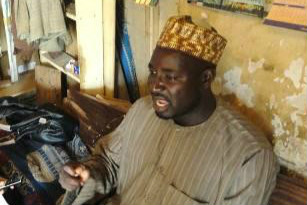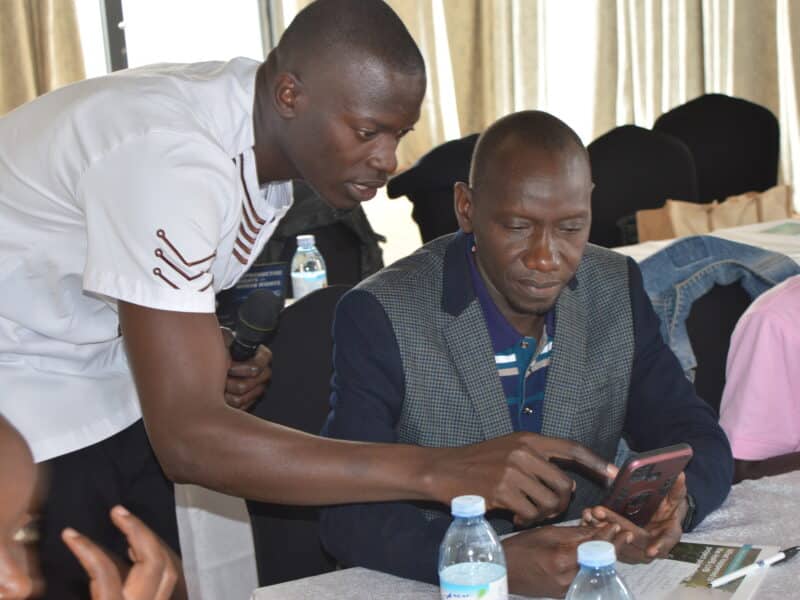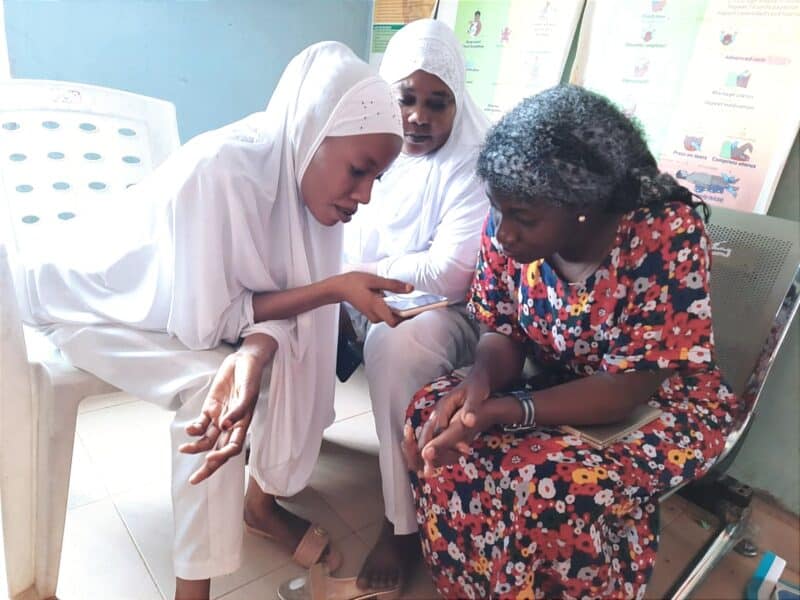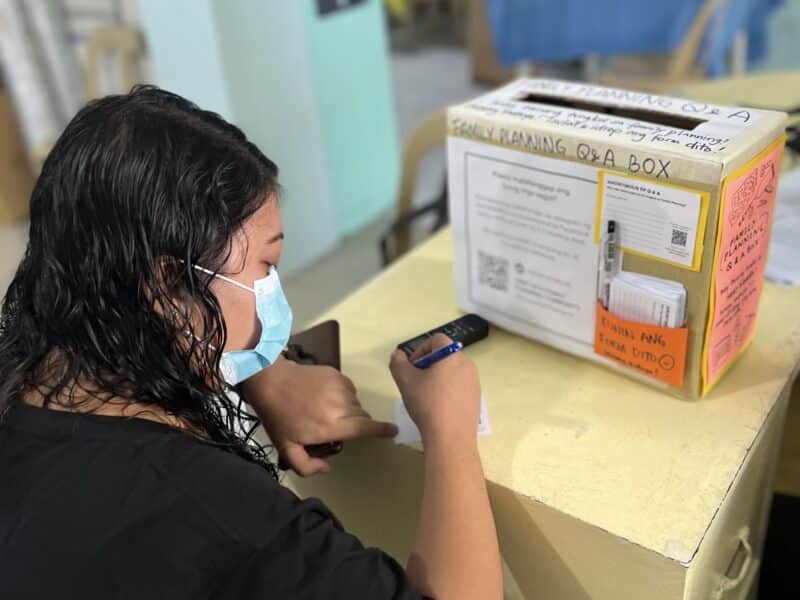Devastated when his beloved first wife died after childbirth, Jubrin Muhammad Bana, an electronics trader living in the Nigerian town of Kaduna, vowed to ensure that his new bride would never die as a result of pregnancy or childbirth.
Jubrin became committed to family planning (FP) as a means to keep his second wife alive and healthy. The Johns Hopkins Bloomberg School of Public Health’s Center for Communication Programs’ (JHUCCP) Nigerian Urban Reproductive Health Initiative (NURHI) is helping Jubrin keep his promise.
The NURHI project airs radio shows that educate about FP as part of the Get It Together campaign, which feature drama, discussion, music, comedy, testimonies, competitions and experts who answer listeners’ questions. Get It Together encourages all Nigerians to know the facts about FP, talk about FP with their partner and receive FP services.
Jubrin enjoys the radio show that airs in Kaduna so much that he sets his alarm so he will never miss an episode. He appreciates the free weekly information about FP and has enthusiastically applied what he learns on the show to the benefit of his family. He also encourages other men to tune into the radio show.
Jubrin boasts, “When I married [my second wife], she was beautiful. Her family should be happy to see that their daughter is happy and healthy.” As a wife, daughter and most recently a mother, Jubrin’s wife remains healthy. Jubrin is overjoyed.
World Population Day highlights the importance of universal access to reproductive health services. The United Nations reports that meeting the unmet need for family planning will result in approximately 100,000 fewer maternal deaths every year. NURHI plays a critical role in this fight and in the lives of Nigerians like Jubrin.
NURHI, a five-year project funded by the Bill and Melinda Gates Foundation, seeks to increase use of modern contraceptive methods among the urban poor in six Nigerian cities. The program looks to emphasize developing cost-effective interventions for integrating quality FP with maternal and newborn health, HIV and AIDS counseling and post-partum care programs.





